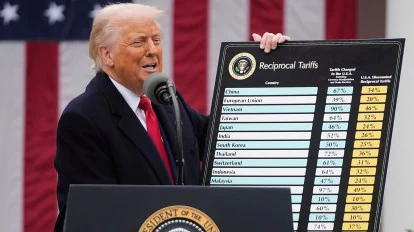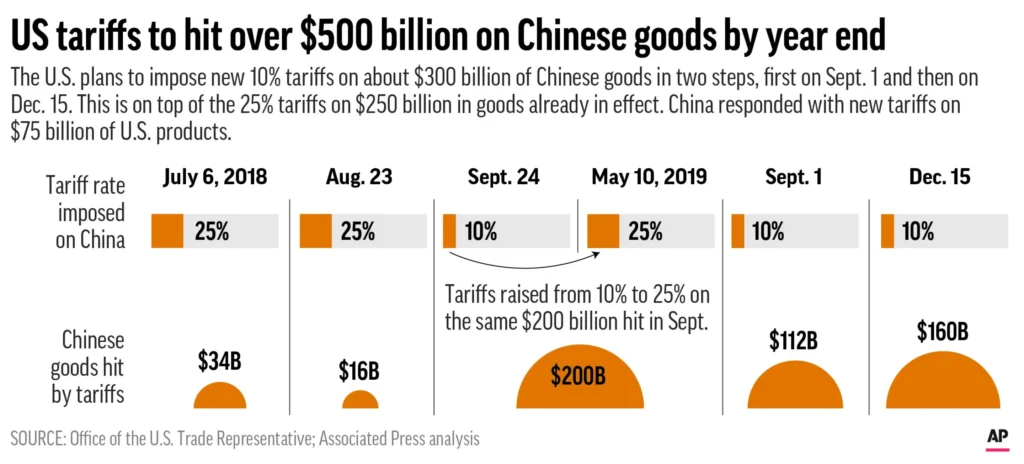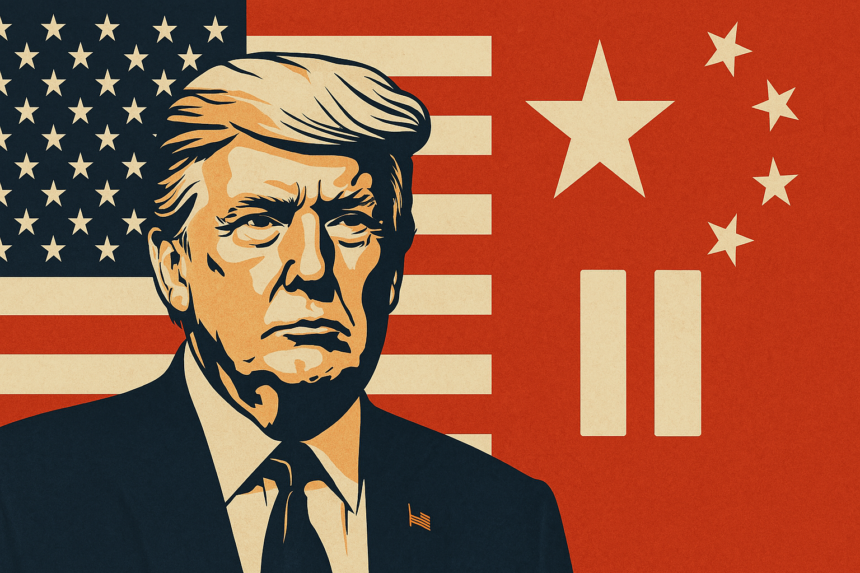President Donald Trump has temporarily paused most of the reciprocal tariffs that have been a hallmark of his administration’s trade policies. This move is expected to relieve businesses and consumers, as the 90-day pause gives companies room to adjust to tariff regulations. However, this pause does not apply to China, which faces heightened tariff rates of up to 125%. The ongoing trade tensions between the U.S. and China are particularly impacting the tech industry, with companies like Apple and Nintendo facing supply chain disruptions and price hikes due to these tariffs.
What’s Happening & Why This Matters
President Trump’s 90-day tariff pause is part of a broader effort to reduce the economic burden that reciprocal tariffs have placed on U.S. businesses. This pause applies to most countries but continues to exclude China, which remains a central figure in the ongoing trade war. For countries affected by these tariffs, the pause provides short-term relief from the escalating import duties that have raised the cost of goods and disrupted supply chains.
The U.S. has maintained high tariffs on Chinese imports, which have risen to 125% under the Trump administration. This is part of the broader trade war with China, aimed at curbing what the U.S. considers unfair trade practices and intellectual property theft. This ongoing tariff war has had far-reaching consequences for industries that rely heavily on Chinese manufacturers, particularly in the tech sector.

Apple, for example, relies on Chinese manufacturers for its iPhone production, facing higher costs due to tariff increases. Apple has started sourcing more components from other countries like India and Vietnam to mitigate these costs, attempting to reduce its dependency on Chinese production. However, despite these efforts, the price of products in the U.S. has risen due to the ongoing tariffs on Chinese goods.
Similarly, Nintendo has been affected, delaying preorders for its highly anticipated Switch 2 due to tariff-related delays. The manufacturing cost in China is now significantly higher, leading to delays in product availability for consumers. Framework, a company known for producing upgradable laptops, was forced to increase prices by 10% due to the tariff hikes, further highlighting how these trade policies directly impact consumer electronics and retail prices.
The Consumer Technology Association (CTA) has called for a full repeal of tariffs, as these measures continue to negatively affect small businesses and start-ups that depend on affordable access to imported goods. Gary Shapiro, CEO of CTA, pointed out that the uncertainty surrounding tariffs is one of the main factors slowing down innovation in the tech sector, as companies are forced to make pricing decisions and supply chain adjustments in response to government regulations. The tariff pause provides temporary relief, but it’s unclear what long-term solutions will be implemented to resolve the broader trade tensions.
Despite the temporary tariff relief, the impact on Chinese imports remains a key issue for the tech industry, especially as consumer electronics prices rise. As Apple, Nintendo, and other companies seek alternatives to Chinese suppliers, the ripple effects of these tariffs will continue to shape global trade policies and industry strategies.

TF Summary: What’s Next
The 90-day tariff pause implemented by President Trump brings short-term relief to businesses, but it does not address the ongoing trade tensions with China. As tariff increases on Chinese goods remain in effect, the tech sector will continue to face challenges related to higher production costs, supply chain disruptions, and rising consumer prices. Companies like Apple and Nintendo actively seek ways to adapt to these conditions, including sourcing from alternative countries to avoid high tariffs. However, the broader issue of trade imbalances and economic policy remains unresolved. The tech industry will likely continue advocating for removing tariffs, as their impact on consumer electronics and small businesses remains a pressing concern.
— Text-to-Speech (TTS) provided by gspeech


